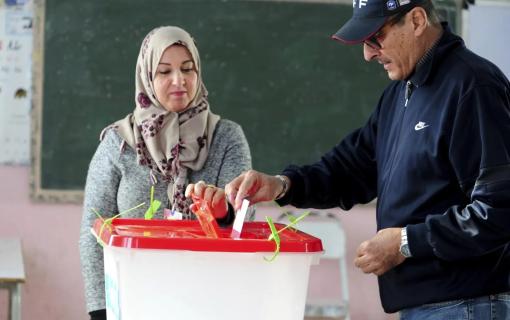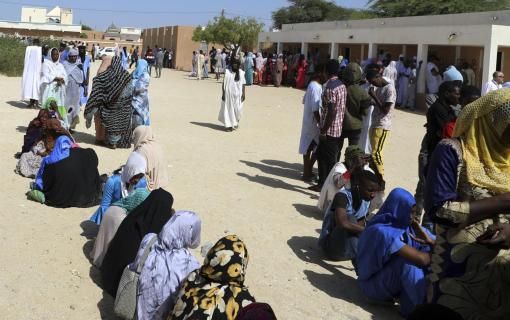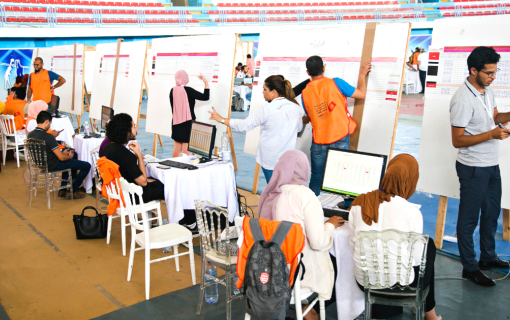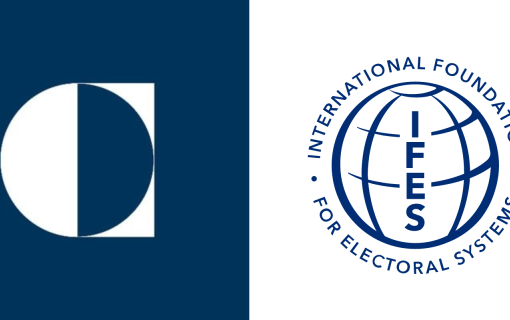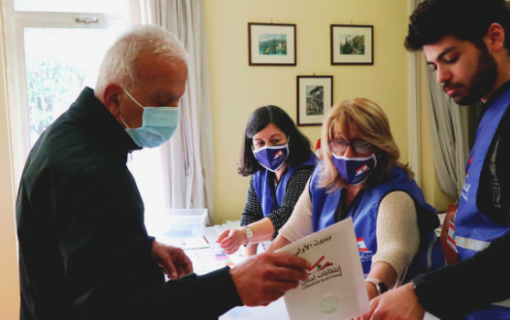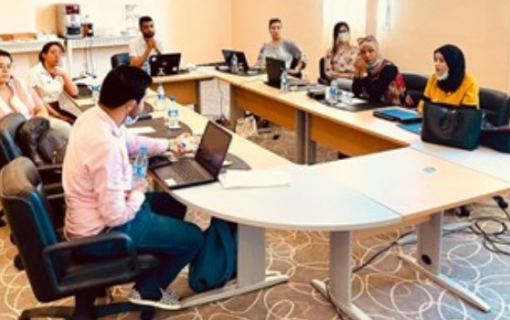A Young Leader in Tunisia Looks Forward
Achref Aouadi, founder of I-Watch, a youth-based nongovernmental organization that monitors campaign finance in Tunisia, knows what it is like to live under an oppressive regime.
Today, he is working to ensure that freedoms acquired through the Arab Spring continues to flourish in his country. A graduate from University of Tunis, he talks to IFES about Tunisia post-Ben Ali and what must be done to ensure that the country’s democratic gains continue to grow.
You grew up during Ben Ali's regime. How did this shape your perspective?
Being a young man who grew up in Ben Ali’s era was really frustrating. Being young means being creative, having lots of ideas, being energetic and willing to change. However, the paranoia of the regime hampered our efforts to innovate. Political opinions and beliefs were prohibited; any initiative had be channeled through a political party or be completely neutral and uninventive.
A deep feeling of disappointment overwhelmed me because of this – seeing your ideas and dreams halted and your freedom limited. Any youth initiative fighting for freedom was met with brutality. Even soccer fan clubs were denied the ability to sing supportive songs. This shaped the minds of my generation. We grew up with a longing for freedom.
What did you feel when Ben Ali stepped aside? What changes did you hope to see in your country?
It is very different. I remember telling my younger brother the moment they announced that Ben Ali left the country, “I can feel the breeze of freedom in Tunisia.”
It felt like we took a heavy burden off our shoulders. We had big dreams and we all shared a dream of a better Tunisia that was democratic and free of corruption, where youth would have a say.
I Watch was formed very soon after Ben Ali stepped aside. How and why did you become involved with this group?
I remember being part of a great team of dreamers who were the pioneers of I-Watch. I saw I-Watch growing every day, going through difficult times but also improving over time.
The October 23 elections will always be the greatest memory in my experience with this organization. At that time, we did not even have an office. A good Tunisian lady agreed to host our operation. We did not have a budget – we only had passion and volunteers.
We managed to be head of a coalition named the I-WATCH JSF and OFIYA Coalition. We worked on a primary elections report that only our coalition managed to publish. I remember the tension, the hard work and the stress that we went through. We quickly forget about these hard times when we see what we are giving to our country and people.
Please tell me about your collaboration with IFES.
After the elections, few organizations resumed work. I-Watch was among a small number of organizations that came back after the elections. I remember being approached by IFES to work on political finance issues. At the time, we did not know what that meant.
Since then, we have been assisted by IFES and introduced to experts in political finance. We have even published a handbook on the topic. It is thanks to IFES that we are gaining such expertise and becoming the first group in Tunisia to specialize in this area.
What or who are the most powerful change agents in Tunisia?
I believe that youth and Facebook are the main factors of change. Each time a campaign starts on social media and is adopted by young people in Tunisia, it fulfills its objectives. Youth feel the heavy burden of protecting their revolution. This is why they are vigilant in trying to accomplish what they started.
What do youth bring to the table when it comes to improving/reforming public affairs?
I believe that youth bring energy and innovation to the table. We have never had a young person in a leadership or a decision-making position, but I trust my peers and I think Tunisia would be a better place if we all trusted our young people.




